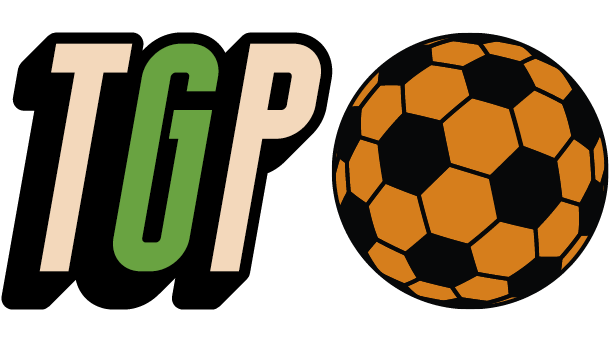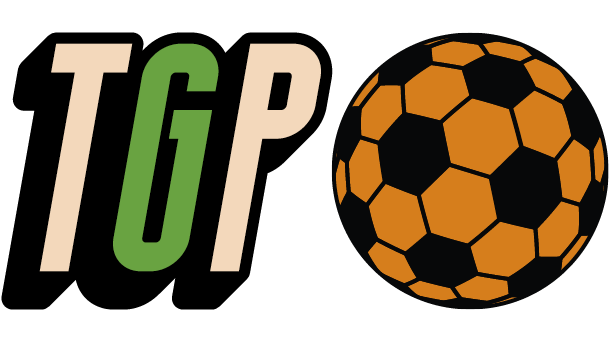In each issue we want to celebrate and inspire by hearing from those who have made their way to the top in the world of disability football. The challenges they’ve overcome, their journey and their hopes for the future of the game after the launch of the FA’s Football Your Way plan.
Interview by Amie Cripps.

In this issue, we speak to Claire Stancliffe who represents Great Britain’s Deaf Women’s team.
TGP: Where did your love of football come from?
Claire: We always had football on the TV growing up, and I was usually at the park playing football with friends from a really young age. I played for both of my primary school’s girls’ and boys’ teams growing up too. I’ve always loved the sport.
You’ve never let your disability stand in the way of your passions! But were there any challenges or obstacles you faced when you realised you wanted to work in football?
Claire: I lost my hearing when I was about four and a half, and football was the one thing that helped me to feel “normal”. It’s always been my escape and a way of expressing myself. Being involved with England has completely changed my life. It’s given me so many life skills and once in a lifetime experiences.
Growing up in Northamptonshire I thought I was the only deaf person in the world until I was about 18! I didn’t realise how deaf I was until I started my A-Levels and my additional support was taken away from me as a result of doing so well during my GCSEs. I’ve always felt isolated as a deaf person and had a deaf friend at the time who invited me down to a five-a-side game. A coach from England was there, and that’s when I started playing deaf football for my country. That was fourteen years ago.
Over the years I’ve been both a funded and an unfunded athlete. You’d be surprised how much it takes out of you when you need to self-fund. You’re exhausted mentally and physically. Fundraising is one of the biggest obstacles I’ve had to overcome, whereas now I can come home from work, train and chill. I don’t need to worry about anything else. In 2015 we were told we couldn’t go to the World Cup because we didn’t have the necessary funds. I raised £18k in thirty days. We ended up going, and I captained the side to a bronze medal in Italy. That was almost as good as making my England debut during a World Cup and scoring four goals!
What impact do you think the FA’s Football Your Way plan will have on the sport?
Claire: Deaf football now receives a lot more funding and support from the FA in particular. They’ve also been fantastic at trying to help us spread the word when it comes to deaf football. I’ve had interviews with news outlets like the BBC, and lots more interaction on Twitter for example. The Lionesses interact with us online too, which is bizarre! But it is really nice to feel like you’re a part of the England set-up.
The initiative focuses on supporting every level of the game from grassroots to the elite level. It also helps players with things like careers after football, and is trying to bring more disabilities to the FA’s workplace to create a culture of inclusivity.
If you were to give yourself one piece of advice growing up, what would it be? Or what words of encouragement would you give to a young person with a disability wanting to play or work in football?
Claire: I play football in both a hearing team and a deaf team. And despite my hearing team being really supportive, I do lack confidence because I don’t always understand what’s happening. Training and playing in the winter under the floodlights makes lip-reading really difficult, and I don’t always “get” banter in the changing room.
But when I go to England camps and play with teammates who are deaf, I am a completely different person. But those challenging experiences have helped me to develop resilience. I’d be a completely different person if I didn’t try and take those opportunities.
If you’re struggling with your disability, make sure you speak up about it because there is always support you can access. And never think you can’t do something because you have a disability. I always say: hard work beats talent, when talent doesn’t work hard. And enjoy your football! That’s the main thing.
What are your dreams for the future of football?
Claire: With the England pathways that have been set up, lots more deaf people will be coming through. That will really help take deaf football to the next level. At the moment we win medals, but they always seem to be bronze! We just need that little extra push and support to step it up a notch.
One day, it’d be great to have a deaf football academy or college. So, offering the same type of provisions that exist in mainstream football but for people with disabilities. I think that’d be amazing.
More initiatives and clubs for young people from the deaf community in their local areas is important too. We can’t have lots of “Claires” thinking they’re the only deaf people in the world, can we!


